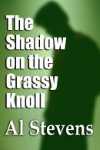Small Presses and Royalty Advances
A discussion is underway at the Absolute Write forums about one particular e-publisher not paying advances on royalties to authors. The original question that was raised asked whether agents will pitch to non-advance-paying publishers since that would defer the agent's income as well as the author's. But the discussion morphed into one about whether no advance was better than an advance.
I was going to post a response there, but it got to be too long. When long posts appear in a public forum, detractors of the poster's position will cull small items out of context and use them to blindside the poster.
Besides, I am not in the good graces of the publisher and her staff and stable. I could post my hat size, and those wagons would circle. So I decided to stay out of the fray and post here instead, a friendly environment for my bottomless opinions.
I lived mainly on book advances, freelance writing, and piano playing for many years. Here's how advances used to work and what they were intended for:
Non-fiction: You pitched a project, signed a contract, and got an advance to live on while you wrote the book. The amount and payment schedules were negotiable. A publisher who said, "I don't pay advances under any circumstances" attracted neither agents nor authors.
Fiction: Can't say for sure, but I was told you took an advance on a completed manuscript so you could pay bills while you wrote the next one. (You wrote your first one on spec and hoped it found its way out of the prehistoric tar pit aka the slush pile.) Same thing about authors and agents. No advance, no interest. Well-established authors of fiction could get advances for works not completed.
Freelance writing: No advances. Payment on publication.
Piano playing: There are no advances for piano playing. I did get some advances over the years, but my wife would not let me pursue them.
To suggest that money received later is better than money received now, all other things being equal, evinces a lack of grounding in finances 101. At the very least whoever has the money gets to work the float.
Furthermore, many books, although they are profitable for the publisher, do not earn back the advance. In which case no advance means more profit for the publisher and less pay for the author. And no one can predict with 100% accuracy which books will fall into that particular doughnut hole.
So the argument that no advance is always better than an advance is specious and assumes your audience is stupid. Not a wise attitude when your audience is populated by writers.
However, the argument being made in that discussion, and not being presented very well, is that getting no advance, higher royalties, and frequent payments is better than getting an advance, lower royalties, and infrequent payments.
There is validity to this argument but no certainty. It can be true, false, or a wash depending on the size of the advance, the delta between the royalty percentages, and the success of sales.
Try to look at it as the author investing in the potential success of the publisher by postponing payment and helping the publisher with its cash flow. The only reasons to do that, however (other than altruism), are if no one else has bought your work, and you're tired of submitting.
If you write for a living as I did and don't have a substantial nest egg, you probably can't afford to underwrite the publisher's expenses. And probably don't want to, either. This is a business model to attract authors who have a day job and who cannot find their work a home with a more established publisher who pays advances.









